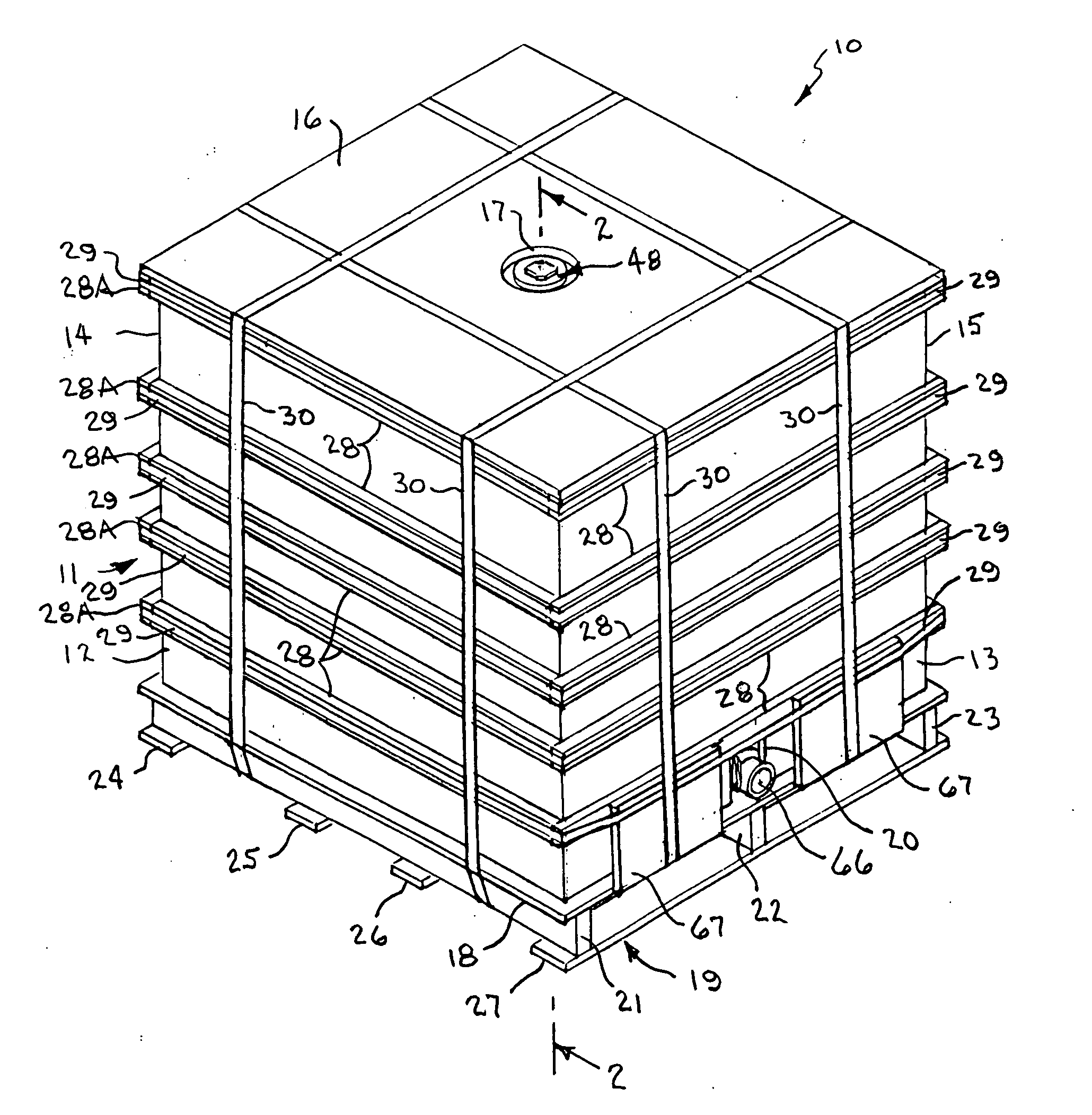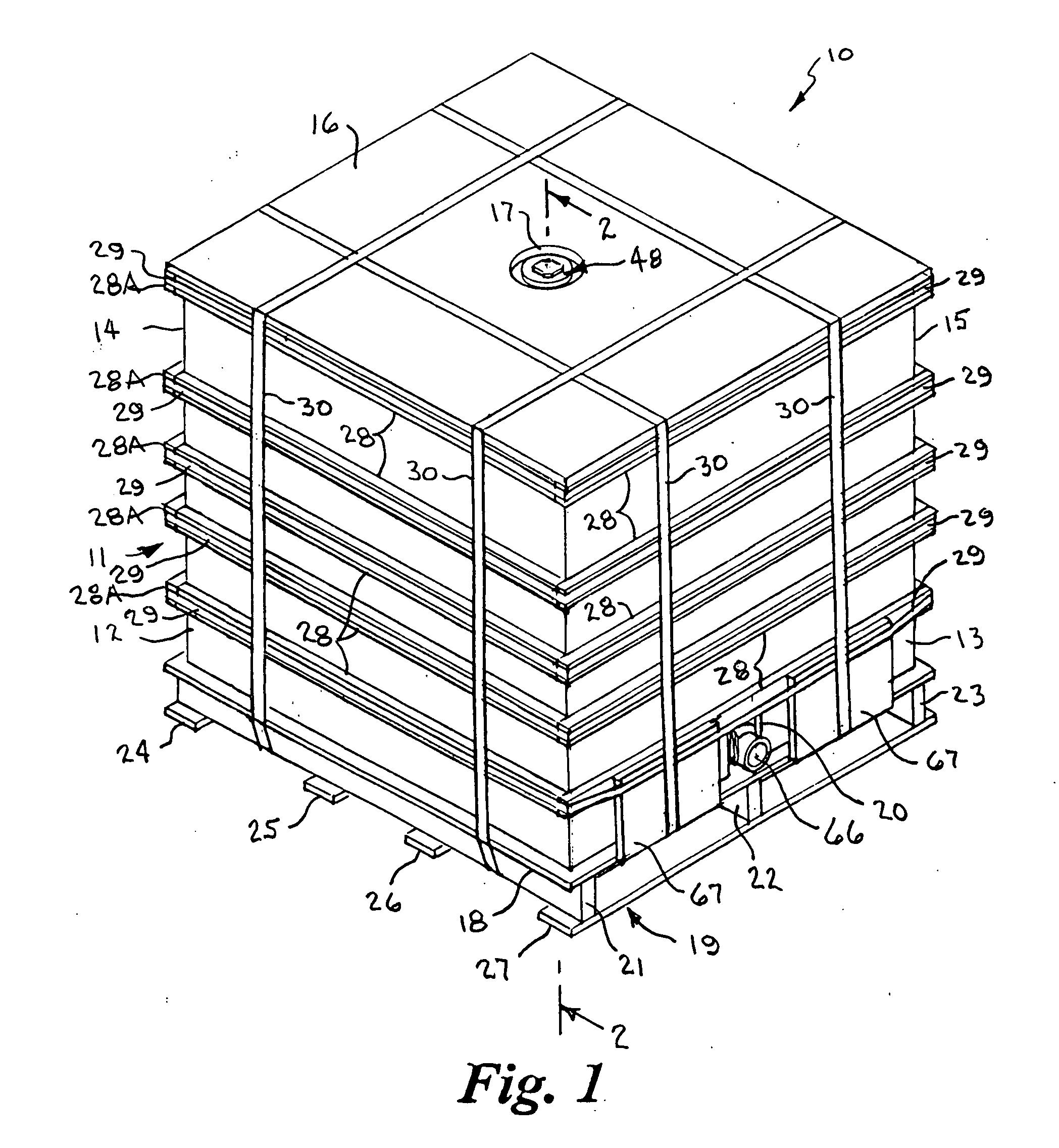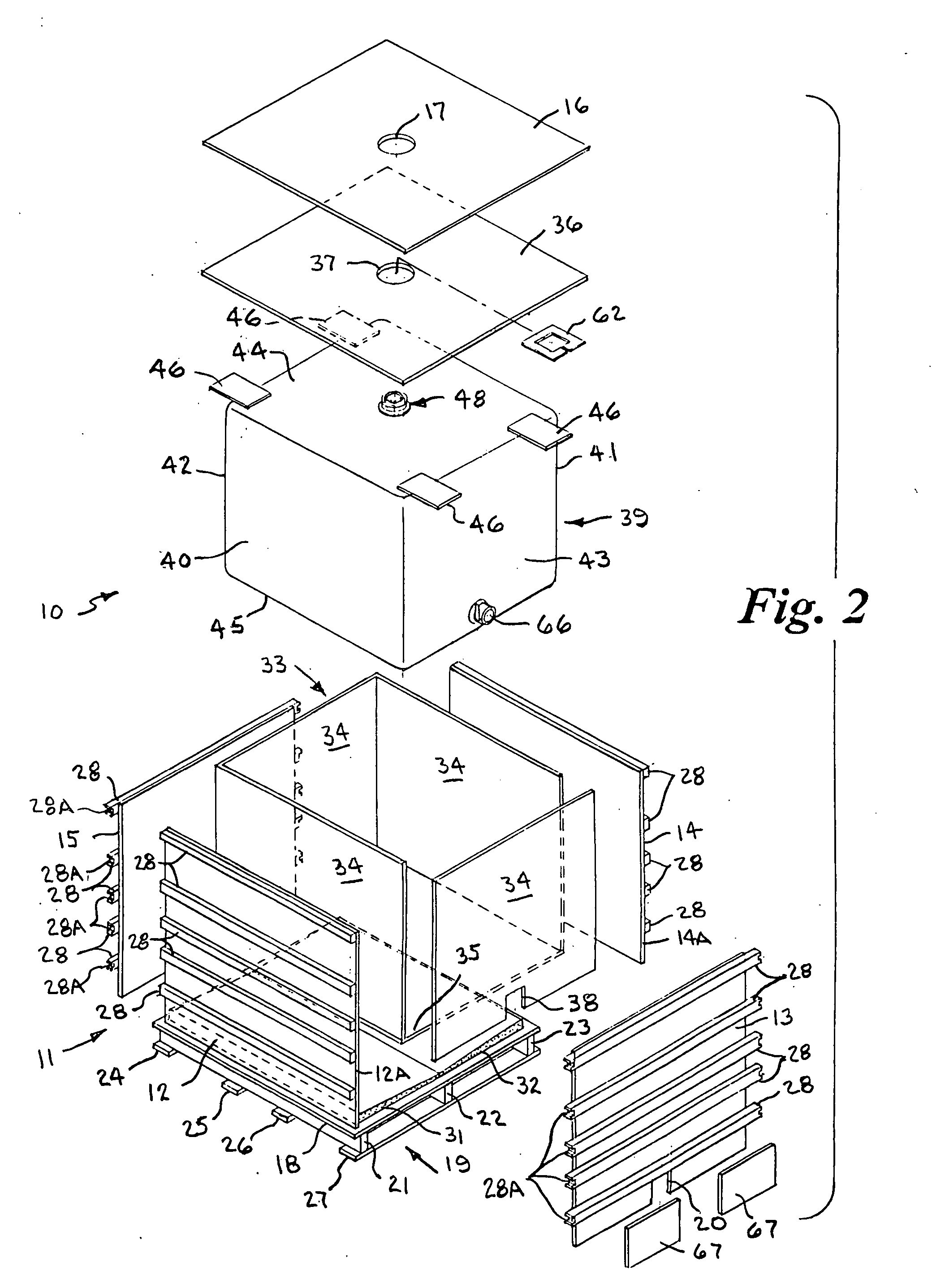Container for bulk handling of fluids
a container and container technology, applied in the field of palletized shipping containers, can solve the problems of severe handling force of containerized fluids, loss of contents, contamination of surrounding areas, etc., and achieve the effects of preventing sagging of the bag, minimizing shock, vibration and abrasive forces, and facilitating optimal emptying of the bag
- Summary
- Abstract
- Description
- Claims
- Application Information
AI Technical Summary
Benefits of technology
Problems solved by technology
Method used
Image
Examples
Embodiment Construction
[0039] Referring to the drawings by numerals of reference, a preferred embodiment of a fully assembled shipping container 10 is shown in FIG. 1, and is shown exploded in FIG. 2 to reveal the principal elements, which include an outer rigid shell 11 with an integral pallet 19, a pair of support wedge members 31, 32 disposed inside the shell at the bottom thereof, an intermediate liner 33, and a flexible bag 39. The rigid outer shell 11 protects the inner bag 39 and its contents from blunt trauma and the integral pallet structure 19 permits individualized transportation and storage of the shell and its contents.
[0040] The outer shell 11 is constructed of four side walls 12, 13, 14 and 15, a top wall 16 with a circular hole 17 at the center thereof and a bottom wall 18 with an integral pallet 19. One of the side walls 13 is provided with a central generally rectangular opening 20 at its bottom end. The bottom wall 18 also serves as the pallet deck. The pallet 19 is formed by the deck ...
PUM
 Login to View More
Login to View More Abstract
Description
Claims
Application Information
 Login to View More
Login to View More - R&D
- Intellectual Property
- Life Sciences
- Materials
- Tech Scout
- Unparalleled Data Quality
- Higher Quality Content
- 60% Fewer Hallucinations
Browse by: Latest US Patents, China's latest patents, Technical Efficacy Thesaurus, Application Domain, Technology Topic, Popular Technical Reports.
© 2025 PatSnap. All rights reserved.Legal|Privacy policy|Modern Slavery Act Transparency Statement|Sitemap|About US| Contact US: help@patsnap.com



